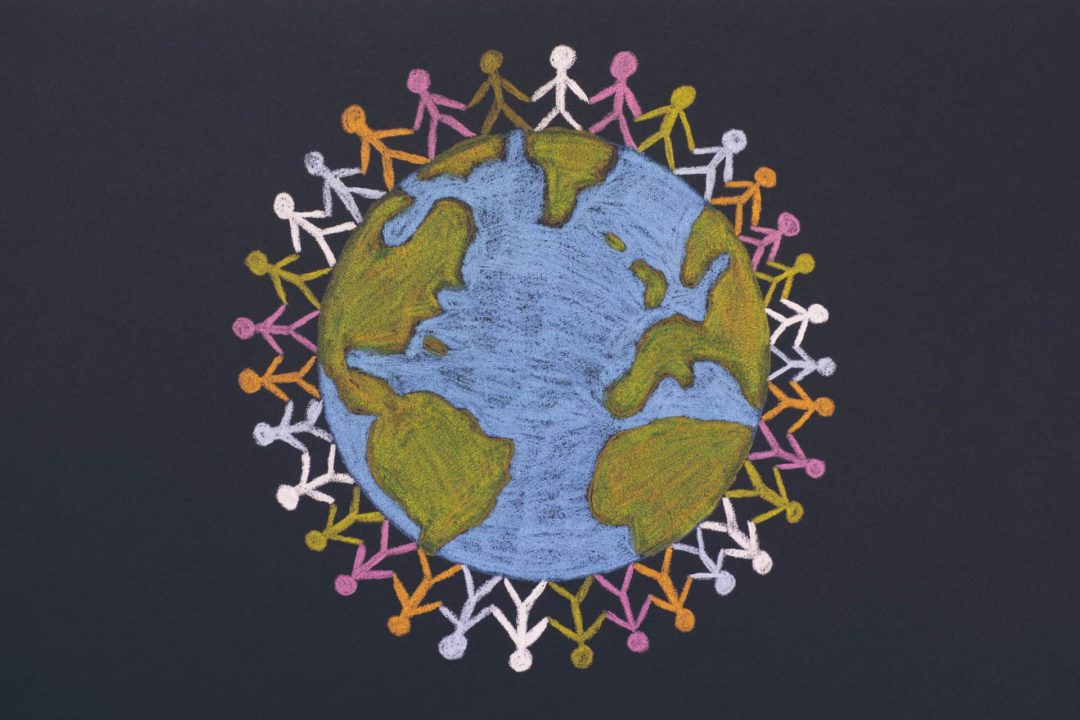Plenty of companies agree with this idea—the idea that local communities need to be cared for as much as the land, and that we can’t abandon people for the sake of agriculture. Indena, a nearly 100-year-old company dedicated to the production of botanical extracts, gave a presentation in Naturally Informed’s Driving Value Through Sustainability Across the Supply Chain in which Greg Ris, VP Sales, discussed the projects Indena has run to benefit people and planet.
“We’ve had this relationship with nature since 1921,” Ris explained inResilience in Action: Best Sourcing Practices for Supplier Sustainability. “Always respecting the traditional uses, working with the shamans, the ethnobotanists, respecting and when possible mimicking nature. This belief—is preserving the natural balance of every living source, strictly adhering to laws, guidelines, procedures, with the aim to guarantee the safety of employees, safeguarding the environment, biodiversity, supply chain, and ensuring the regeneration of botanical raw materials.”
Suppliers, Ris explained, must adhere to specific procedures and criteria regarding sustainability, quality, traceability, and reliability. And Indena is striving to ensure full sustainability of all supply chains. “We’ve put together a multidisciplinary team consisting of botanists, communication professionals, managers of quality systems, and regulatory experts, alongside cultural and linguistic operators, to help support these complex projects.”
Ris informed attendees about several case studies Indena has managed, supporting the plants they use and the people who harvest them.
Related: SHP Publishes Sustainability & Regenerative Practices Toolkit ABC: Record-Breaking Herbal Sales Predicted for 2020 Pines International: “Growing Soil” Makes Good Cropland Better
Case Study #1:Centella asiatica. “It’s an interesting plant,” Ris said. “This is harvested in Madagascar. It has applications in both topical—as a wound healing agent—and orally, to stimulate collagen synthesis. It’s been in our portfolio for a long time.”The target of this project, Ris said, was to improve living conditions and decrease poverty in the local community where the plant was being harvested. “We also wanted to improve the education system, work with schools and young children.” The first stage involved five primary schools: “We provided 1,450 school kits to these kids, the first year, and then 350 the second year. We provided the didactic materials for the schools, and training for the teachers in French and Malagasy languages and mathematics, and when needed, we helped in the renovation of some of the buildings.” The project lasted three years, ending in October 2018. It involved Pronama, the supplier in the area, which Indena has been working with for 20 years.
“The results were impressive,” Ris shared. “Attendance improved more than 10%. Enrollment improved significantly—34%, that first year. Literacy rates improved, as did exam rates, and the motivation of the teachers improved as well.”
But Indena wasn’t done there. “We wanted to capitalize on that project. We went back into the same region, worked with five new schools, providing 2,465 school kits to these students. We continued to support the first five schools we were involved with. And in the new schools, we provided the same materials as before, and training. We worked with parents and teachers—similar to what we would consider the PTA, in the U.S.—to build the awareness about the importance of education, and then when necessary, some of the hard structures like water wells, we were able to support as well.” This project is still ongoing; Ris says it has a set end date of October 2021.
Case study #2:Terminalia sericea. “This grows in Tanzania. It’s an interesting wood—it’s a very hard wood, impervious to termites,” Ris explains. “It’s used for building materials. The actives are used for stomach disorders—the leaves and the bark are used for that.” The focus of this particular project was to prevent deforestation, promote biodiversity, and underline the economic importance of the material as well as the necessity that it be harvested sustainably. “Again, there were positive results from this particular project. There was a sense of community pride, everybody got involved. There were some institutions that actually donated land to this particular project.”
Ris also spoke about Indena’s work withBoswellia serrata, the company’s membership in the labor rights organization Sedex, and the steps Indena has taken towards sustainable factory function and biomass recovery. To hear his talk, register to get access to the on-demand videoshere.
“Our journey through sustainability—this is certainly one of our core values,” Ris said. He noted that Indena is doing more than can be explained in one presentation, and pointed attendees towards the company’s white paper,Our Journey Through Sustainability.
Looking for more from this presentation? Watch it at your convenience by registering here, or check out Saving the Planet, Soil First and From Farm to Conference.










